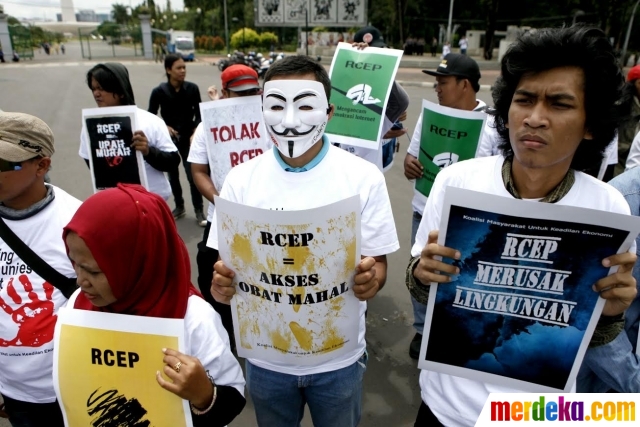RCEP meeting fails to reach consensus on e-commerce, investment

Business Standard | 13 November 2018
RCEP meeting fails to reach consensus on e-commerce, investment
(PTI) - The two-day RCEP Ministerial meeting at Singapore failed to reach a consensus on chapters related to e-commerce, competition and investment, though progress was made on several other issues.
India was represented by Commerce and Industry Minister Suresh Prabhu at the ministerial negotiations, to be followed by the Leaders’ Summit on Wednesday. Prime Minister Narendra Modi will be participating in the summit.
The ministerial took stock of the state of negotiations across the various chapters and also assessed the progress on ’The Package of Year End Deliverables’. They urged the negotiators to expedite talks with a view to conclude negotiations by the end of next year.
The RCEP (Regional Comprehensive Economic Partnership) agreement is a mega trade pact aims to cover goods, services, investments, economic and technical cooperation, competition and intellectual property rights.
Member countries have differences over the issues concerning e-commerce, competition and investment as they apprehend that the norms would have adverse implications on their domestic industry as well as the economy.
"Ministers guided the negotiators to deliberate further on e-commerce, competition and investment chapters where consensus could not be reached during this meeting. Ministers urged the negotiators to intensify their work with a view of narrowing gaps and finding balanced outcomes in the negotiations with the aim of concluding negotiations by 2019," the Commerce Ministry said in a statement.
Prabhu, according to the statement, said that ’substantial progress’ has been achieved in the negotiations which should be reported to the leaders. He also impressed upon all the trade ministers to lend political support to fast track the negotiations.
The Commerce Minister defended India’s interests effectively and secured maximum flexibilities, it said, adding, in both STRACAP and SPS negotiations, India managed to obtain balanced outcomes in the application of the Dispute Settlement Mechanism.
India also showed flexibility on the principle of ’consensus’ in the Institutional Provisions Chapter which helped in its successful conclusion during the meeting.
The ministers acknowledged the good progress made in the negotiations so far with successful conclusion of 5 chapters this year alone, taking the total to 7 chapters, namely Economic and Technical Cooperation ; Small and Medium Enterprises ; Customs Procedures and Trade Facilitation ; Government Procurement ; Institutional Provisions ; Standards, Technical Regulations and Conformity Assessment Procedures (STRACAP) ; and Sanitary and Phytosanitary (SPS).
On the sidelines of the RCEP, the Commerce Minister held bilateral meetings with his counterparts from Singapore, China, Japan and New Zealand. He discussed bilateral issues and progress in RCEP negotiations. He also had pull-aside meetings with trade ministers of South Korea, Indonesia, Cambodia, Malaysia, Australia and Philippines to discuss matters of mutual interest.
The Regional Comprehensive Economic Partnership (RCEP) bloc comprises 10 Asean members (Brunei, Cambodia, Indonesia, Malaysia, Myanmar, Singapore, Thailand, the Philippines, Laos and Vietnam) and their six FTA partners - India, China, Japan, South Korea, Australia and New Zealand.





